Discover Your Roots
SIGN UPDiscover Your Roots
SIGN UPThe name Jorge is of Spanish origin and is primarily a male name, meaning "farmer". It is derived from the Greek name Γεώργιος (Georgios) via Latin Georgius, with the former meaning "farmer" or "earth-worker". The Latin form Georgius had been rarely given in Western Christendom since at least the 6th century, but the popularity of the name developed from around the 12th century. Notable individuals with the name Jorge include Pope Francis, Argentine author Jorge Luis Borges, and Mexican boxer Jorge Páez, among many others. The name has a strong presence in various fields such as sports, literature, and music. With its deep historical roots and widespread usage, Jorge continues to be a popular and meaningful name choice for many parents.
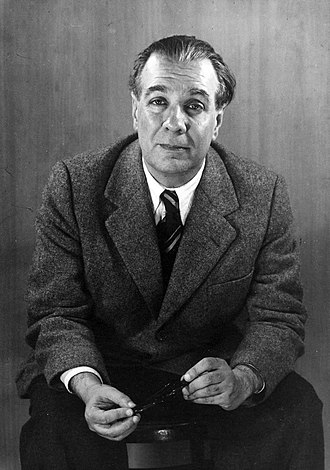
Jorge Francisco Isidoro Luis Borges Acevedo, known as Jorge Luis Borges, was a prominent Argentine short-story writer, essayist, and poet, born on August 24, 1899, in Buenos Aires. His literary works, particularly "Ficciones" and "El Aleph," are celebrated for their exploration of themes like dreams, labyrinths, and mythology. Borges' writings have significantly influenced philosophical literature, the fantasy genre, and the magical realist movement in Latin American literature. Despite losing his eyesight at the age of 55, Borges continued to create innovative literary symbols through imagination. His international recognition grew in the 1960s with the increasing number of English translations and the success of other Latin American writers. Borges was fluent in several languages and received numerous accolades, including the first Formentor Prize and the Jerusalem Prize. He is revered for his contributions to modern and post-modern literature, with renowned writers like J. M. Coetzee and David Foster Wallace acknowledging his profound impact on the literary world. Borges' legacy continues to inspire and captivate readers and writers worldwide.
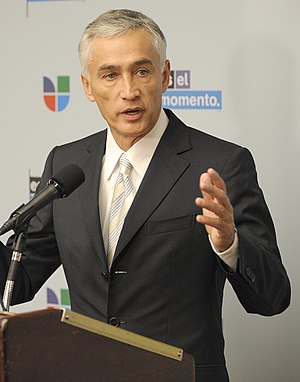
Jorge Gilberto Ramos Ávalos, born on March 16, 1958, in Mexico City, is a prominent Mexican journalist and author, recognized as the preeminent Spanish-language news anchor in the United States. He is widely hailed as "The Walter Cronkite of Latin America" and has garnered acclaim for his work as the anchor of various television programs, including Noticiero Univision and Al Punto. Ramos' illustrious career has seen him cover significant global events such as the fall of the Berlin Wall, the War in Afghanistan, and the 9/11 terrorist attacks. He has received numerous accolades, including ten Emmy Awards and the prestigious Maria Moors Cabot Prize for excellence in journalism.Ramos' unwavering commitment to journalism and fearless pursuit of truth has made him a highly influential figure. His interviews with prominent world leaders, bilingual newspaper columns, and regular appearances on English-language cable networks have further solidified his status as a trusted and influential Hispanic figure in America. Additionally, he founded Despierta Leyendo, the first book club in the history of Spanish-language television, showcasing his passion for literature and education. With his significant impact on American Latino audiences and his notable contributions to the field of journalism, Ramos continues to be a revered and influential figure in the media landscape.
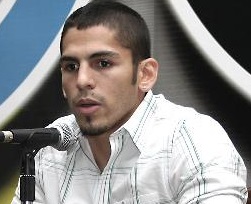
Jorge Linares, born on August 22, 1985, is a retired Venezuelan professional boxer who has held world championships in three different weight classes. His amateur career boasted an impressive 89-5 record, winning multiple national junior championships in Venezuela. Linares made his professional boxing debut at the age of 17 and quickly gained recognition for his exceptional talent and skill. Throughout his career, he achieved significant milestones, including winning the WBC featherweight title, the WBA super featherweight title, and the WBA, WBC, and Ring magazine lightweight titles. Linares' notable fights against renowned opponents such as Oscar Larios and Gamaliel Diaz further solidified his reputation as a formidable boxer. His remarkable journey in the world of boxing has left an indelible mark, establishing him as one of Venezuela's most celebrated sports figures.
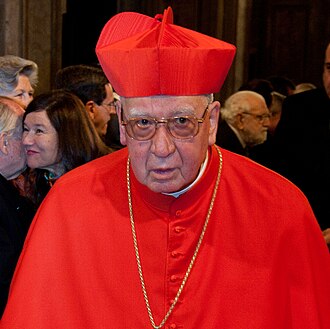
Jorge Arturo Agustín Medina Estévez (1926-2021) was a notable Chilean prelate of the Catholic Church who held senior positions in his native country and in the Roman Curia. He served as the Prefect of the Congregation for Divine Worship and the Discipline of the Sacraments from 1996 to 2002 and was made a cardinal in 1998. Medina was also known for announcing the election of Pope Benedict XVI to the world in 2005 as the Cardinal Protodeacon, the longest-serving cardinal of the order of cardinal deacons.Born in Santiago in 1926, Medina pursued his education at the Pontifical Catholic University of Chile and was ordained a priest in 1954. He later earned a doctorate in theology and served as a bishop in various dioceses before being appointed as the Pro-Prefect and later Prefect of the Congregation for Divine Worship and the Discipline of the Sacraments.Medina's legacy was marked by controversy due to his support for the Chilean coup d'etat by General Augusto Pinochet and his controversial views on the sexual abuse of minors by priests. He passed away in Santiago on 3 October 2021.Despite his controversial views, Medina's impact on the Catholic Church and his significant role in the election of Pope Benedict XVI left a lasting mark on the church's history.
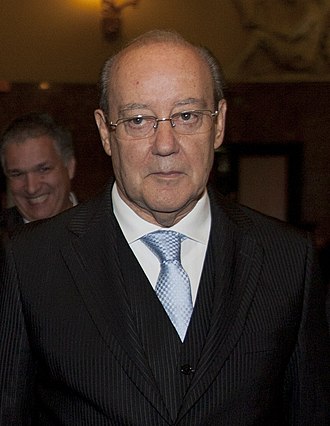
Jorge Nuno de Lima Pinto da Costa (28 December 1937 – 15 February 2025) was a prominent Portuguese sports executive known for his long tenure as the president of the Portuguese sports club Porto from 1982 until 2024. Pinto da Costa holds the record for the most titles won (69) in the history of football and the most days in charge as a football president worldwide. He was involved in the Portuguese football corruption scandal Apito Dourado but was eventually absolved in April 2009 after receiving a two-year suspension and a €10,000 fine in May 2008.Born in Cedofeita, Pinto da Costa began his career as a bank teller and started collaborating with Porto in his late teens. He held various directorial positions within the club's sports departments and played a pivotal role in the resurgence of Porto's football success in the late 1970s. Upon being elected as chairman in 1982, he appointed José Maria Pedroto as the association football manager, leading to significant achievements for Porto, including their first European final in 1984 and their historic victory in the European Cup final in 1987.Pinto da Costa's legacy is marked by his instrumental role in shaping Porto's footballing success and his enduring impact on the club's structure and achievements.
All images displayed on this page are sourced from Wikipedia or Wikimedia Commons.We use these images under their respective Creative Commons or public domain licenses. Wherever applicable, author attributions and license information are provided. If you believe an image is used incorrectly or outside its license terms, please contact us so that we can review and correct the issue.